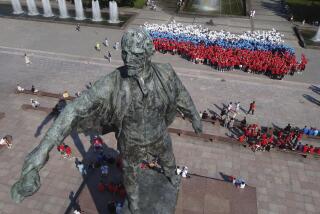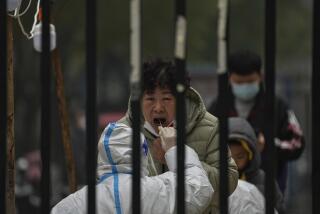PERSPECTIVE ON THE SOVIET UNION : The Paper Tigers Are Defanged : The right wing is ruined, the army is disgraced, the republics are stronger; now the people have something to defend.
It was like a cheap political thriller on a drugstore book rack: The chief of the KGB and the Red Army arrest the reformist president of the Soviet Union and start to turn back the clock of history. Yet, stranger than fiction, the leadership of this coup was obviously feckless from the start, in their lack of nerve to spill blood, in their failure to arrest Boris Yeltsin first, or to muzzle the international media, or to have a charismatic leader or alternative program. They were completely out of touch with the realities of the new Soviet pluralism--defined by the emergence of variegated new centers of political power beyond the reach of a palace putsch in the Kremlin.
Almost like fiction, this failed coup attempt may be the best thing that has happened in Soviet politics in a long time. The far right, the heart of the old Soviet Communist Party, has dramatically self-destructed. There is nothing that this dying force could have done to more effectively ruin itself than to reveal its illegal, bankrupt intentions and methods as well as its bankrupt personalities and policies.
And the dark specter of a KGB-military coup--so long a lurking possibility--has been revealed as something less awesome in reality than in the political imagination.
The army too, has disgraced itself as a rogue force, an enemy of legitimacy and reform. Since it won’t be trusted at home, it is likely to be weakened even more as a power in domestic politics; it should command less clout and resources at budget time--good news for all the rest of the world as well.
The grand winner, of course, is Boris Yeltsin, now the supreme political figure in the country. With his demonstrated legitimacy strengthening his hand, both internationally and domestically, he has now carved out a powerful position in relation to the Moscow “center”--the increasingly fictional shell that the Soviet Union represents vis-a-vis the hard political realities of the Russian republic.
Yeltsin’s Russia is not the only winner in this regard. All of the republics are now in a stronger position, for in this crisis it was the Union that proved itself untrustworthy, a permanent threat to their sovereignty. The events of this week will be indelibly engraved in the memories of all; indeed, some of the Baltics’ leaders have already called for “immediate” withdrawal of their states from the Union, rather than risk a replay of the game some other time. At the least, the republics will seek ever greater diffusion of the center’s power, to forestall future usurpation of their rights by Moscow.
Mikhail Gorbachev, of course, had been the symbol of the Union with whom all the republics, including Russia, had been negotiating for sovereign rights. As the Soviet president, Gorbachev has been weakened to the extent that the moral authority of the Union itself has been damaged. But in another sense, Gorbachev, too, emerges as one of the winners in this crisis. He will be far less threatened by a vanquished right wing, and less required to compromise with it. (He also loses the right wing as an excuse by which to fend off radical reformers within the party.) As the unpopular architect of the economic mess of perestroika, Gorbachev nonetheless will be welcomed home as a “hero” in his own right, a lot better figure to have at the helm of the Soviet Union than those who sought to replace him. He will, of course, be deeply in debt to Yeltsin, and cooperation between the two men will be more essential than ever. Gorbachev, to survive, must now shift to the left to accommodate the new “correlation of forces” domestically.
The Soviet Union’s ties with the external world also gained strength and relevance as outside voices rose in support for Gorbachev, Yeltsin and the concepts of legitimacy and legality. In stunning counterpoint, the old guard could point only to Baghdad, Tripoli and Havana as loyal allies in the dying world of communism. The affirmation of democratic values in the new Soviet Union, at least for now, will give the country a powerful thrust into the Western community of nations.
This is not to say that struggles for power in the Soviet Union are over. Stormy political days lie ahead. The historical transformation from a Marxist-Leninist command economy to a democratic and free-market system can be nothing less than chaotic. But Soviet citizens now know that they have something to defend. This may have been their immunization or fortification against future military intervention and gross acts of illegality by the moribund Communist Party. That is no small gain from the traumatic “night of the generals” that we have all lived through.
More to Read
Sign up for Essential California
The most important California stories and recommendations in your inbox every morning.
You may occasionally receive promotional content from the Los Angeles Times.









